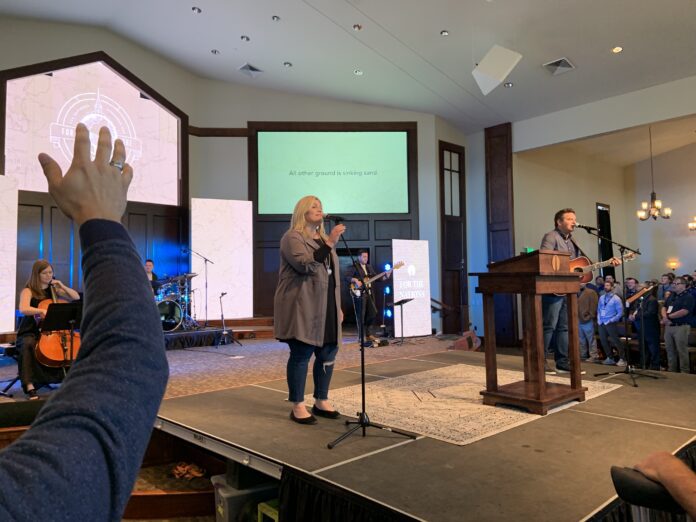I recently attended the For the Church Conference at Midwestern Baptist Theological Seminary. It was two days of great teaching, but for me, it was the times of musical worship that acted as a balm to my weary soul. I know that sounds overly dramatic, but when you sing theologically rich songs with 1,000 other people that sing wholeheartedly, it will encourage and lift the hurting heart.
That is one of the many benefits of embracing the “Sing to one another” command found in Eph. 5:19. Music encourages, heals, instructs, teaches and it truly has the power to impact our hearts like nothing else. The truth is that God created our hearts to love and appreciate music. It moves us from an early age. That created design demands that we take time to evaluate the music in our student ministries and our churches.
So, what are we looking for? What type of music should we sing and embrace? Here are a few things to put on our list:
• Our music should be God-honoring. While this should go without saying, music can slip through that is more “about me than He.” Our youth group meetings and congregational worship times should always utilize music that brings glory to God. I recommend you make that a characteristic of your church and personal music. Does all of our personal music need to be praise to God the Father? No. But, it definitely shouldn’t be dishonoring to God. That becomes an important choice as we seek to live a life of personal holiness.
• Our music should be singable by all. (Incoming Old Man Rant…) Why choose music that only a handful of people in the church can sing? For instance, it is vital that the men of our congregations are able to sing along with the music. They need to lead through example, but when that is not possible because the music is too high, they give up. As young men in our student ministries go through vocal changes, they will learn to give up quickly if the leadership is not aware of this issue. Chris Tomlin is an incredible vocalist, but choosing music that he writes in the same key that he releases can make it hard for the congregation to engage.
• Our music should be theologically correct. In an effort to turn a phrase, weak theology can sneak in. As we plan our student ministry worship times or the Sunday morning worship, we cannot simply sing Christian music because it is on the radio and popular. We must evaluate the message of the music. What we hear, we will learn. When we teach children the alphabet, we use music. Many churches use a song to teach the books of the Bible. Melody helps engrain words and concepts onto our hearts. Therefore, we must be careful what we sing.
• Our music should express the entirety of the Christian experience. Music for our students and congregations should express joy and sorrow. We should not be afraid to utilize music that speaks of the hardships and sorrows of the Christian life. Our congregations and youth groups are full of hurting people that need help expressing that pain. Music can do that.
Music is powerful. It can do so many positive things, but if we are not careful, we will sing songs about the creation rather than the Creator or self rather than the Savior. Let us honor God with our music in our youth meetings and as our churches gather for worship.



